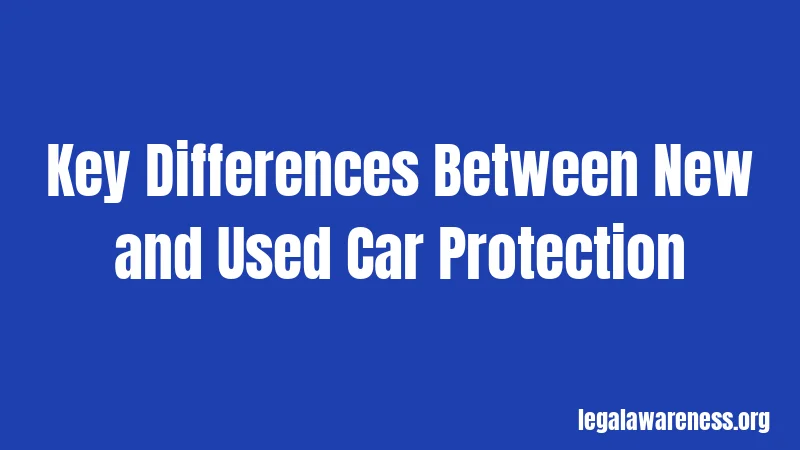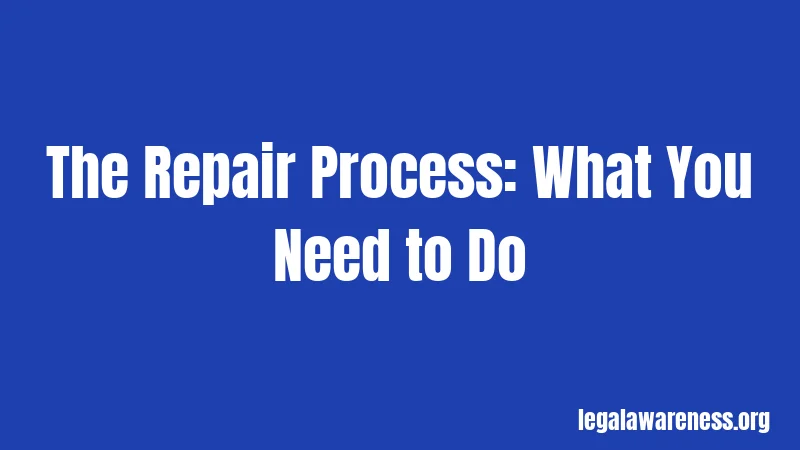Massachusetts Lemon Laws (2026): Everything You Need to Know
You just bought a new car. You drive it home feeling great. Then, two weeks later, something’s wrong. The engine stalls. The brakes squeak. Now you’re wondering if you got stuck with a lemon.
Here’s the good news. Massachusetts has some seriously strong consumer protections. If you bought a defective car, the law is actually on your side. Let’s break down exactly what Massachusetts lemon laws cover and what you need to do about it.
What Is a Lemon, Anyway?

A “lemon” isn’t just a car that has one small issue. The legal definition is much more specific. A lemon is any car that has at least one major defect. That defect has to substantially impair the vehicle’s use, safety, or market value. Plus, the defect has to remain unfixed after a reasonable number of repair attempts.
Think of it like this: a scratched door handle? Not a lemon. An engine that stalls every time you drive? That’s a lemon. The defect has to be serious enough to make the car unreliable or unsafe to drive.
The Two Types of Massachusetts Lemon Laws
Okay, pause. This is important because the rules are different depending on whether you bought a new car or a used one. Read this carefully. Your rights change based on which one applies to you.
New Vehicle Lemon Law
You’re gonna love this one if you just bought a new car. Massachusetts gives you really strong protection. You have one full year from the date you get the car, or 15,000 miles of driving, whichever comes first. That’s your “term of protection.”
During that time, if the car has a defect that seriously impairs its use, safety, or market value, you’re covered. The manufacturer gets up to three chances to fix the same problem. Pretty straightforward, right?
If the defect comes back after those three repair attempts, or if the car sits in the shop for 15 cumulative business days (even without three repair attempts), you may qualify for a refund or replacement.
Here’s what qualifies as a defect under the new car law: any specific or generic defect or malfunction. So whether it’s engine problems, transmission issues, electrical failures, or something else entirely, if it seriously affects how the car works, it counts.
Used Vehicle Lemon Law
Used cars get protection too, but it’s different. This one’s a bit trickier. You have much less time with a used car. The protection period depends on the car’s mileage at the time you bought it.
This is where it gets interesting. A used car sold by a dealer has different coverage based on mileage brackets. The higher the mileage when you bought it, the shorter your protection window. Some used cars get only 30 days of protection. Others get longer.
Here’s the catch: you must report the issue within 30 days of purchase for most used vehicles. And the problem has to cost at least $700 to fix. Sound complicated? It’s actually not once you understand the basics.
Key Differences Between New and Used Car Protection

Not sure which rule applies to you? Let me break down the main differences.
New cars get you one year or 15,000 miles. Used cars often get just 30 days. The manufacturer is responsible for new cars you buy from a dealer. The dealer is responsible for used cars. Got it?
For new cars, the manufacturer gets three repair attempts. For used cars, the dealer gets three attempts too. But here’s where it matters: if the used car fails inspection within seven days, you can get a refund if the repair cost exceeds 10 percent of the purchase price.
Also, you can only charge the dealer up to $100 for repairs on a used car lemon, but the manufacturer covers new car repairs completely. That’s a big difference right there.
What Qualifies as a “Defect”?
You’re probably wondering what counts as a defect serious enough to claim protection. This is where people often get confused. Not every problem makes your car a lemon.
A defect has to substantially impair the use, safety, or market value. Let’s talk about what that actually means. If it affects how you can drive the car, or if it makes the car unsafe, or if it makes the car worth at least 10 percent less than it should be, you’ve got a serious defect.
Engine stalling? Yep. Brake failure? Absolutely. Transmission problems? Yes. A broken radio? No way. A scratch on the paint? Not even close. You see where I’m going with this.
The defect also has to happen more than once. A one-time dashboard light that never appears again won’t cut it. But if that light keeps coming back after the dealer fixes it multiple times, now you’re talking. The same issue has to persist or recur after repair attempts.
The Repair Process: What You Need to Do

Here’s where things get serious. The process matters. You need to follow the right steps to protect yourself legally.
First, tell the dealer or manufacturer about the problem. Do this as soon as you notice something wrong. Write it down. Keep a record of when you reported it. Documentation is everything in these cases.
Give them a chance to fix it. This is required. You can’t just demand a refund on day one. The law requires you to give them a “reasonable number” of repair attempts. For new cars, that’s three attempts for the same problem. For used cars, it’s three attempts too.
Keep every single receipt. Keep every repair order. Keep records of every time you brought the car in. Take photos. Write down dates and times. Everything you have becomes evidence if you end up in arbitration or court.
Now, here’s the important part. Make sure the same issue gets fixed each time. If the transmission problem comes back after the first repair, bring it back for a second attempt. Track it carefully. You need to be able to prove that the same defect keeps happening.
If after three repair attempts the problem persists, you can demand a final opportunity to fix it. The manufacturer or dealer gets seven more days to resolve it completely. If it’s still broken after that, you’ve got a strong case for a refund or replacement.
What If Your Car Sits in the Shop Too Long?
This rule surprises a lot of people. You don’t actually need three failed repair attempts to get a refund. You can get one based on time in the shop alone.
For new cars, if your vehicle is out of service for 15 or more cumulative business days within the one-year or 15,000-mile protection period, you qualify. Don’t count weekends or holidays. Just business days when the shop is open.
For used cars, the threshold is even lower. If your car is out of service for 11 or more cumulative business days, you can demand a refund. That adds up pretty fast if the dealer keeps having to order parts and schedule repairs.
Think of it like a traffic ticket, but for the manufacturer. If they can’t get your car fixed and back to you quickly, the law penalizes them by requiring a refund.
Understanding the 10 Percent Rule
You may have heard about the “10 percent rule” and wondered what it means. Let me explain it simply.
To prove that a defect damages your car’s market value, you need to show it makes the car worth at least 10 percent less than it would be without the problem. That’s the legal threshold.
So if you bought your car for $25,000, you’d need to prove it’s worth at least $2,500 less because of the defect. If you can do that, you’ve got solid evidence for your claim.
Most serious defects easily meet this test. Engine problems, transmission failure, structural damage—these all reduce the car’s value significantly. Small cosmetic issues rarely do.
Penalties and Your Options: What Happens Next?
Okay, here’s where it gets important. What can you actually get if you win a lemon law case?
You have a few options. You can get a full refund of the purchase price. You get your money back, minus deductions for mileage you’ve driven. Or you can get a replacement vehicle of the same make and model in similar condition. Either way, the manufacturer covers sales tax, registration fees, and dealer delivery charges.
If you bought the car with a loan and you’ve paid interest, you might be able to get that back too. That’s something to discuss with a lawyer if you have one.
Honestly, this is the part most people miss. You can also pursue what’s called a “demand letter” under Massachusetts General Law Chapter 93A. If you do this and the manufacturer doesn’t make a reasonable settlement offer, you could win up to triple damages in court. Triple. That’s three times what you actually lost.
This is why dealers and manufacturers take lemon law claims seriously. They don’t want to face triple damages. So they often settle even when they think they could win in arbitration.
The Arbitration Option: Your First Step
Before you go to court, you should know about arbitration. This is actually a pretty sweet deal for consumers. It’s less formal than court. It’s faster. And it’s free through the state program.
You can request state arbitration through the Office of Consumer Affairs and Business Regulation (OCABR). You must apply within 18 months of getting the vehicle. An arbitrator will hear your case. Both sides present evidence. The arbitrator decides whether your car is a lemon and what you deserve.
The data is pretty encouraging here. According to the Massachusetts Attorney General’s Office, arbitration results in a refund or replacement in roughly 70 percent of valid cases. That’s strong odds if your claim is legitimate.
But stay with me here. You should know that the arbitrator might award you less money than you’d get in court. That’s the tradeoff. You get a faster, easier process, but potentially lower compensation. It’s a calculated risk you’ll want to think through.
You can also skip arbitration entirely and go straight to court if you want. But most people try arbitration first. It makes sense. Why spend money on a lawyer if you might win for free in arbitration?
The Demand Letter Strategy
Hold on, this part is important. Before arbitration or court, you can send what’s called a “demand letter” to the manufacturer or dealer.
In this letter, you explain that the car is a lemon. You explain what it costs to fix the problem. You give them a chance to settle. You have to follow specific rules about what to include and how to send it, so getting help from a lawyer is smart here.
If they ignore the letter or refuse to make a reasonable settlement offer, you can take them to court. And if you do, you’re eligible for up to triple damages under Massachusetts law. This law is called the unfair and deceptive practices act.
Manufacturers know this. That’s why they often settle after receiving a demand letter. It’s way cheaper than risking triple damages in court.
Wait, What About Used Cars Sold by Private Sellers?
This is a common question. The law is different for private sales. Private sellers aren’t required to provide the same warranties as dealers. But they do have to tell you about serious problems they know about.
If a private seller knew something was seriously wrong with the car and didn’t tell you, that’s fraud. You might be able to cancel the sale or sue for damages. But you won’t have the same lemon law protections as if you bought from a dealer.
Most people don’t realize this. If you bought from a friend or a private party on Craigslist, you have fewer protections. This is one reason buying from a dealer, even a used car dealer, offers better legal protection.
Special Cases You Should Know About
Demonstrator vehicles and fleet vehicles sometimes get special treatment. If a car was a demo or fleet vehicle and still has low mileage, it might be covered under the new car lemon law even if you’re buying it as “used.”
Don’t accept the dealer getting your inspection sticker for you either. This is a trick sometimes used to hide problems. If your car needs repairs to pass inspection, that’s a major red flag. In fact, if a newly purchased used car fails inspection within seven days, and the repair cost exceeds 10 percent of the purchase price, you can get a full refund.
Also, rental cars get special treatment. They’re not covered by the lemon law. That’s important to know if you’re thinking about buying a former rental vehicle.
How to Stay Protected: Your Action Plan
Let’s talk about what you should actually do to protect yourself. First, read the warranty paperwork you get at purchase. Really read it. Don’t just sign and forget.
Take photos of any problems. Write down exactly what’s wrong. Record dates and times. Keep receipts for everything. Your phone can do all this easily. Don’t skip this step.
When you bring the car in for repair, be specific about the problem. Don’t just say “it feels weird.” Explain exactly what happens. Make sure you get a repair order that documents the issue. Ask them to note what they found and what they fixed.
Get the dealer to sign off on work orders confirming the repair attempts. Keep copies for yourself. This paper trail becomes your evidence if you need to go to arbitration or court.
If you ever get to the point where you’re seriously considering an arbitration or court case, contact a lawyer who handles lemon law cases. Many work on contingency. That means they don’t charge you unless they win. The manufacturer often pays attorney fees in these cases, so it costs you nothing upfront.
Frequently Asked Questions
How long do I have to report a problem with my new car? You should report it as soon as you notice it, but you’re covered for repairs within one year or 15,000 miles. This is your “period of protection.” After that, you’re out of luck under the lemon law.
Does the lemon law cover my motorcycle? New motorcycles are covered by the new vehicle lemon law. Used motorcycles are not covered. This is one difference between new and used vehicle protection.
What if the dealer fixes the problem and it works fine afterward? Then your car isn’t a lemon. The law requires the problem to persist or recur after repair attempts. One successful repair means the car meets the legal standard of quality.
Can I get my loan interest refunded if I win? Possibly. If you financed the car and win a lemon law case, some courts allow you to recover interest paid while you were fighting the case. This is something your attorney would negotiate in settlement.
What if I’m not sure if my problem counts? Contact a lemon law attorney or the OCABR for guidance. Most lemon law lawyers offer free consultations. They can tell you whether your situation qualifies in about five minutes.
How much does it cost to pursue a lemon law case? If you pursue state arbitration, it’s free. If you hire a lawyer, many work on contingency. You don’t pay unless you win. The manufacturer often pays attorney fees if you win, so your costs might be zero.
Can the manufacturer deny my claim if I used a third-party mechanic? No. You’re required to use authorized dealers or the manufacturer for repairs. They can’t deny your claim because you tried to save money elsewhere. That’s against the law.
Final Thoughts
You’ve got real legal protection in Massachusetts if you buy a lemon. The state takes this seriously. Defective cars aren’t just annoying. They’re costly. The law recognizes this and gives you genuine remedies.
If you end up with a car that has serious problems, don’t just accept it. Document everything. Follow the repair process carefully. Give the manufacturer their three chances to fix it. Then pursue arbitration if they fail.
Most cases settle without going to arbitration or court. Manufacturers know the law is strong here. They settle because the alternative—facing triple damages—scares them.
Now you know the basics. Stay informed. Keep your paperwork organized. And when in doubt, ask a lawyer. You’ve got the law on your side.
References
- Massachusetts Guide to New and Leased Car Lemon Law | Mass.gov: https://www.mass.gov/guides/guide-to-new-and-leased-car-lemon-law
- Massachusetts New Car Lemon Laws | Massachusetts Legal Help: https://www.masslegalhelp.org/money-debt/automobiles/massachusetts-new-car-lemon-laws
- Massachusetts Used Car Lemon Law | Massachusetts Legal Help: https://www.masslegalhelp.org/money-debt/automobiles/massachusetts-used-car-lemon-law
- Lemon Laws | Mass.gov: https://www.mass.gov/lemon-laws
- General Laws Chapter 90, Section 7N½: https://malegislature.gov/Laws/GeneralLaws/Part%20I/Title%20XIV/Chapter%2090/Section%207N
